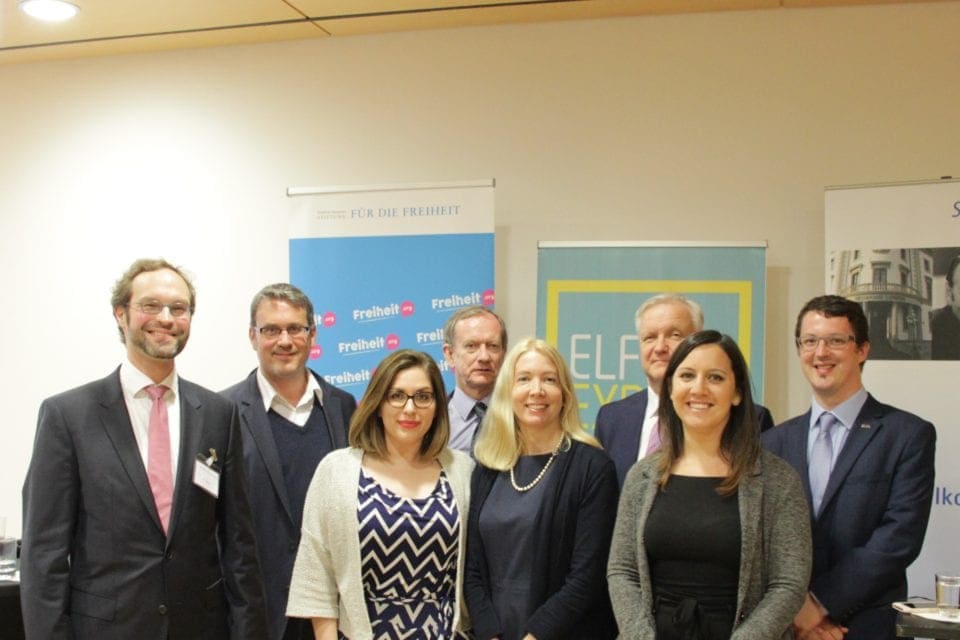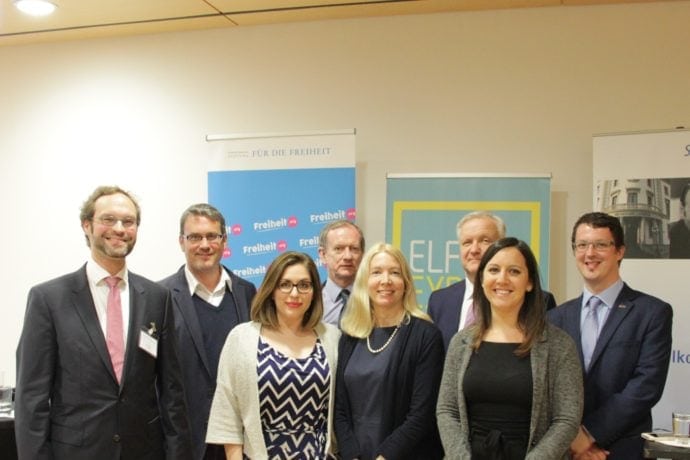The evening discussion was opened by Svenja HAHN (Member of the ALDE PARTY Manifesto Drafting Committee). In her introductory remarks, she offered an overview of the ALDE Manifesto Drafting Process and of the status of the Expert Forums underling the importance of these hearings for the Manifesto process.
Olli Rehn, the Former European Commissioner for Economic and Monetary affairs, gave a keynote speech in which he stated that the discussions on European monetary integration always tend to be quite technical, but they are nonetheless necessary. He said that the role of liberals is increasingly important in these times when we are threatened politically and socially by USA distancing itself from the global governance, the UK leaving the EU, Russia trying to assert old school power politics, and China getting ever stronger and authoritarian. Strengthening the EMU should be part of broader goal of strengthening the European Union.
He said Eurozone reform is urgent. However, the EU has to put its house in order first strengthening its supranational institutions learning lessons from the previous crisis. He said the Eurozone crisis unveiled huge problems in the EMU institutions, and that prior to the crisis, too little attention was given to the stability of the banking system and the financial instability was the neglected child of this situation. This explained why the EU had to reform the system in the middle of the crisis and why the crisis galvanised the response. He highlighted that despite the EU is now experiencing its sixth successive year of Eurozone growth since the crisis – there has been significant improvement in the maladies of the Member States’ economies, especially when it comes to unemployment who has been declining since 2012-2013; fiscal deficits are now under control and the banking sector is gradually healing – there is no room for complacency and the EU needs to continue the reconstruction of the EMU. The EU, he said, should learn from its past mistakes and use these good times for reforming and preparing the system for future challenges that will come.

